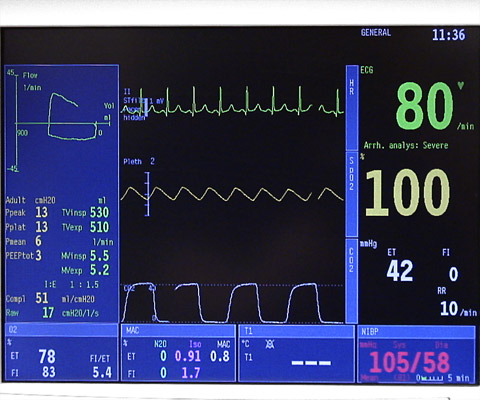Positive Pressure Ventilation
Controlled ventilation via a cLMA can be considered an advanced use of the cLMA.
During intermittent positive pressure ventilation (IPPV) the airway is exposed to a non-physiological 'positive pressure'. Due to the low pressure airway seal of the cLMA, the risk and extent of airway leak increases as pressure rises.
Airway pressure should not exceed 20 cmH2O during controlled ventilation via the cLMA.
Raised airway pressure may lead to hypoventilation (increased loss of ventilating gas) and an increased risk of regurgitation (gastric distension). Spirometry (flow volume loops) is useful for detecting airway leaks that may not be apparent clinically. Listening over the epigastrium with a stethoscope is a sensitive way to detect gastric inflation.
There is a robust argument that when IPPV is to be applied via a laryngeal mask a ProSeal LMA is a better choice than the cLMA.
